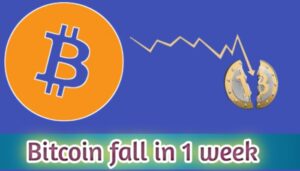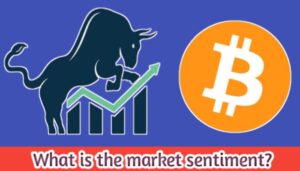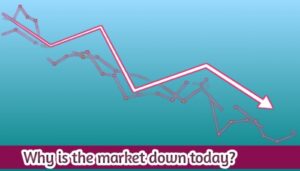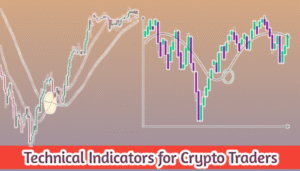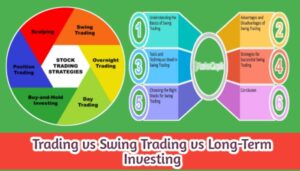Foreign exchange investment, often known as Forex trading, is one of the largest and most liquid financial markets in the world. Every day, trillions of dollars’ worth of currencies are exchanged globally. Unlike stock markets that operate in specific locations such as the NYSE or NASDAQ, the Forex market is decentralized and operates 24 hours a day across different time zones.
For investors, Forex provides an opportunity to profit from fluctuations in currency values. With the rise of online platforms and easy access to trading apps, individuals from all over the world can now participate in Forex trading. However, while it promises high returns, it also comes with significant risks.
1. What is Forex Trading?
Forex trading is the process of buying one currency while simultaneously selling another. The goal is to make a profit from changes in exchange rates. For example, if you believe the value of the Euro will rise against the US Dollar, you might buy EUR/USD. If the Euro strengthens, you can sell it back at a higher price and pocket the difference.
Point: Forex trading always involves pairs, such as:
- EUR/USD (Euro vs US Dollar)
- GBP/JPY (British Pound vs Japanese Yen)
- AUD/CAD (Australian Dollar vs Canadian Dollar)
2. History and Evolution of the Forex Market
The Forex market has evolved significantly over the centuries:
- Gold Standard Era (1800s–1930s): Currencies were pegged to gold, providing stability.
- Bretton Woods Agreement (1944): Major currencies were linked to the US Dollar, which was backed by gold.
- Post-1971: After the collapse of Bretton Woods, currencies began floating freely, giving birth to the modern Forex market.
- 2000s-Present: With the internet revolution, Forex became accessible to retail traders worldwide.
3. How the Forex Market Works
The Forex market works through a global network of banks, brokers, financial institutions, and retail traders. Unlike stock exchanges, it has no central marketplace.
- OTC (Over-The-Counter) Market: All Forex transactions happen electronically through brokers or banks.
- 24-Hour Operation: The market runs from Monday to Friday, covering major sessions like London, New York, Tokyo, and Sydney.
- Bid and Ask Price: Traders buy at the ask price and sell at the bid price.
4. Key Participants in the Forex Market
- Central Banks – Control monetary policy and currency supply.
- Commercial Banks & Financial Institutions – Facilitate international trade and investments.
- Hedge Funds & Investment Managers – Trade large volumes for clients.
- Corporations – Exchange currency for global business operations.
- Retail Traders – Individual investors trading through online platforms.
5. Major and Minor Currency Pairs
Currencies are categorized into Major, Minor, and Exotic pairs.
| Category | Examples | Characteristics |
|---|---|---|
| Major Pairs | EUR/USD, GBP/USD, USD/JPY | High liquidity, tight spreads, most traded |
| Minor Pairs | EUR/GBP, AUD/JPY, GBP/CHF | Less liquid than majors, slightly higher spreads |
| Exotic Pairs | USD/TRY, EUR/INR, USD/ZAR | Involve emerging market currencies, high volatility and risk |
6. Factors Influencing Currency Prices
- Economic Indicators – GDP, inflation, unemployment rates.
- Interest Rates – Higher interest rates attract foreign investment, strengthening a currency.
- Political Stability – Political uncertainty often weakens a currency.
- Market Sentiment – Traders’ perceptions and news events influence demand.
- Global Events – Wars, pandemics, or natural disasters can shift currency values dramatically.
7. Benefits of Forex Investment
- High Liquidity: Easy entry and exit due to massive trading volume.
- Accessibility: Available 24/5 globally with online platforms.
- Low Capital Requirement: Some brokers allow trading with as little as $100.
- Profit Potential in Both Directions: You can profit whether a currency rises or falls.
8. Risks and Challenges in Forex Trading
While Forex offers opportunities, it also has considerable risks:
| Risk | Description |
|---|---|
| Leverage Risk | High leverage can magnify both profits and losses. |
| Market Volatility | Sudden news or events can cause sharp price movements. |
| Broker Risk | Unregulated brokers may scam traders. |
| Emotional Trading | Fear and greed often lead to poor decisions. |
9. Types of Forex Trading Strategies
- Day Trading – Multiple trades within a day, avoiding overnight risk.
- Swing Trading – Holding trades for several days to capture medium-term trends.
- Scalping – Quick trades aiming for small profits on tiny price changes.
- Position Trading – Long-term approach, holding positions for weeks or months.
10. Fundamental Analysis in Forex
Fundamental analysis involves studying economic, political, and social factors to forecast currency movements. For example:
- A rise in US interest rates usually strengthens the USD.
- Political instability in the UK may weaken the GBP.
11. Technical Analysis in Forex
Technical analysis relies on charts, patterns, and indicators to predict price movements. Popular tools include:
- Moving Averages
- Relative Strength Index (RSI)
- Fibonacci Retracement
- Candlestick Patterns
12. Day Trading vs. Swing Trading vs. Long-Term Investing
| Style | Advantages | Disadvantages | |
|---|---|---|---|
| Day Trading | No overnight risk, quick profits | High stress, needs constant monitoring | |
| Swing Trading | Captures bigger trends, less stressful | Requires patience and discipline | |
| Long-Term | Less time-consuming, big-picture gains | Risk of long-term volatility |
13. Leverage and Margin in Forex
- Leverage allows traders to control a large position with a small deposit. For example, 1:100 leverage means $1,000 controls $100,000.
- Margin is the amount of money a trader must deposit to open a leveraged trade.
14. Role of Central Banks and Government Policies
Central banks like the Federal Reserve (USA), ECB (Europe), and Bank of Japan play a key role in Forex. They set interest rates, control money supply, and sometimes intervene directly to stabilize their currencies.
15. Forex Trading Platforms and Tools
Popular trading platforms include:
- MetaTrader 4 (MT4) – Most widely used, beginner-friendly.
- MetaTrader 5 (MT5) – Advanced version with extra features.
- cTrader – Known for transparency and ECN execution.
16. How to Start Investing in Forex
- Learn the basics through courses or demo accounts.
- Choose a regulated broker.
- Open a demo account to practice.
- Start small with real money once confident.
- Continuously analyze and improve your strategies.
17. Choosing a Reliable Forex Broker
| Criteria | Why It Matters |
|---|---|
| Regulation | Protects you from scams (look for FCA, CySEC, ASIC licenses). |
| Spreads & Fees | Lower spreads = more profit. |
| Leverage Options | Choose wisely; avoid very high leverage as a beginner. |
| Platform | Should be stable, easy to use, and offer technical tools. |
18. Importance of Risk Management in Forex
- Use Stop-Loss Orders to limit losses.
- Never risk more than 1–2% of your capital per trade.
- Diversify across pairs instead of trading just one.
- Control emotions; stick to your trading plan.
19. Common Mistakes Made by Forex Investors
- Overtrading with too many positions.
- Ignoring risk management.
- Trading without a clear strategy.
- Falling for “get-rich-quick” scams.
- Using excessive leverage.
20. Forex Trading Regulations Around the World
- USA: Regulated by CFTC & NFA, very strict.
- UK: FCA regulates brokers, ensuring transparency.
- Australia: ASIC provides investor protection.
- India: RBI & SEBI allow limited Forex trading with restrictions.
21. Advantages of Forex Over Other Investments
| Feature | Forex | Stocks |
|---|---|---|
| Liquidity | Very high | Moderate |
| Trading Hours | 24/5 | Limited (exchange hours) |
| Leverage | High (up to 1:500) | Low (1:2 – 1:5) |
| Accessibility | Easy, online platforms | Requires brokerage accounts |
22. Taxation on Forex Gains
Forex profits are usually taxed as capital gains or business income, depending on local laws. For example:
- US & UK: Treated as capital gains.
- India: Taxed as speculative income.
Always consult a tax professional in your country.
23. Future Trends in Forex Investment
- AI & Automation: Algorithmic trading and AI bots will grow.
- Mobile Trading: Apps will dominate over desktop platforms.
- Cryptocurrency Integration: Forex brokers may increasingly offer crypto pairs.
- Regulatory Tightening: More countries will regulate retail Forex for safety.
24. Conclusion: Is Forex Investment Right for You?
Foreign exchange investment offers enormous opportunities, but it’s not a “get-rich-quick” scheme. Success requires knowledge, discipline, and risk management. For beginners, the best approach is to start small, practice on demo accounts, and treat Forex like a long-term skill-building journey.
If done wisely, Forex can be a powerful addition to an investment portfolio. But if treated recklessly, it can lead to heavy losses. The choice, ultimately, lies in the hands of the investor.




